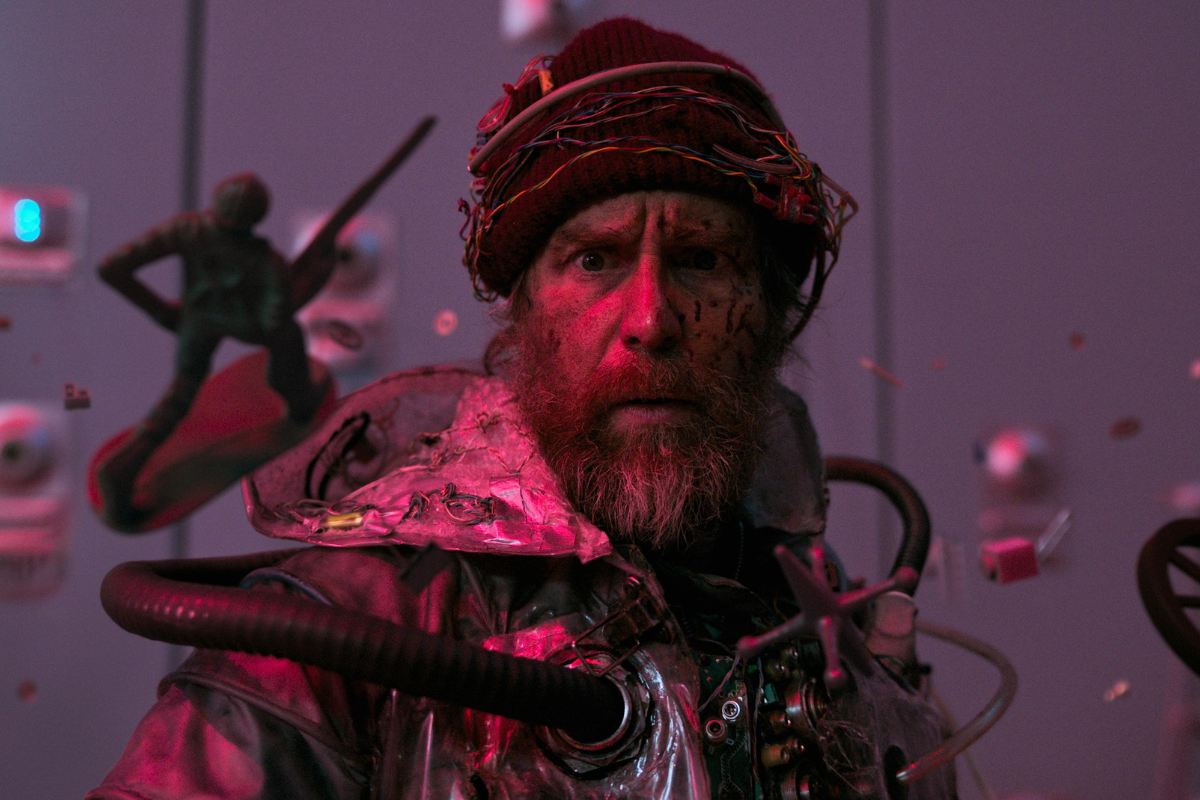‘Rebuilding’ Review
Max Walker-Silverman has a way of making films that feel like they were whispered to him by the land itself. His latest feature, Rebuilding, unfolds with the kind of patience…
Max Walker-Silverman has a way of making films that feel like they were whispered to him by the land itself. His latest feature, Rebuilding, unfolds with the kind of patience and emotional clarity that feels deeply personal from the very first frame. It recalls the intimate human studies of Nomadland and Aftersun, two films rooted in quiet grief and tender observation. Like those stories, Rebuilding is not interested in sweeping gestures. Instead, it pays attention to how people carry loss in the smallest corners of their bodies and in the fragile rituals of daily life. What emerges is a heartwarming story of renewal after tragedy, told with such care that it becomes difficult not to feel pulled into its rhythm of sorrow, slow healing, and soft hope.
At the center of this gentle drama is Dusty, played with remarkable restraint by Josh O’Connor. Dusty is a Colorado rancher whose entire world has just gone up in flames. His family ranch, built by his grandparents, has been reduced to ash. The bright blue barn is gone. The cattle are gone. What remains is a man struggling to understand who he is without the land that shaped him. O’Connor plays Dusty not as a broken man, but as someone trying to make sense of the pieces still in his hands. He carries himself with a slight stoop inside the tight quarters of his FEMA assigned trailer, as if trying not to press too hard against the thin ceiling of what his life has become. That physicality suggests more about Dusty than any speech ever could. It is the kind of lived in performance that never reaches for emotion. It simply exists, and that is more than enough.
Dusty is newly divorced, though the film never turns that dynamic into conflict. Ruby, played by Meghann Fahy, is patient yet firm. She is frustrated by the ways Dusty failed to apply himself when they were together, but her frustration is layered with real affection. Ruby has moved on in some ways, but she still cares about the father of her child. Their daughter Callie-Rose, played by the extraordinary newcomer Lily LaTorre, is the spark that keeps Dusty tethered to the world he still has. She decorates his cramped trailer with glow in the dark stars, a small gesture that carries enormous emotional weight. Those stars suggest a new sky, a new beginning, even if the walls around them feel temporary. LaTorre’s presence is striking. She carries the story with a natural, unaffected charm that never feels forced. Many films struggle to give young performers roles with real emotional texture, but Walker-Silverman finds something special in her and brings it to the surface with astonishing tenderness.
The early sections of Rebuilding function almost like a meditation. Dusty tries to keep everyone at arm’s length. He sees himself as different from the others in the FEMA camp, as if he is only passing through. He believes that this loss is temporary in a way that theirs is not. The film takes its time in dismantling that illusion. Walker-Silverman often focuses on simple daily actions. Dusty sweeps the floor of his trailer. He helps with a community meal. He talks quietly with his ex-wife. He listens. He struggles. He remembers. Slowly, the truth emerges. Loss is universal, whether it arrives all at once in a wildfire or accumulates over years of misplaced priorities and emotional distancing.
What gives Rebuilding its emotional charge is how honestly it deals with the ache of losing not just objects, but the memories contained within them. There is a devastating moment when Dusty talks about how he keeps remembering small things he lost in the fire, like his daughter’s kindergarten art. He fears there are memories he will never recall again because the objects that anchored them have vanished. O’Connor plays this moment without a single dramatic flourish. His voice barely lifts. His eyes do the heavy lifting, and the quiet panic buried inside them is unforgettable. It is one of the most affecting monologues in recent memory, and it speaks to something universal. Our possessions hold the stories we forget we are carrying. When they disappear, a part of us does too.
Walker-Silverman guides this story with a steady hand. His visual world is warm, earthy, and grounded in natural light. The cinematography by Alfonso Herrera Salcedo draws out the rugged beauty of Colorado without romanticizing the devastation. The film opens on scorched land, but it also pauses to appreciate sunsets, magic hour bike rides, and small gestures between neighbors who are learning to rely on one another. There are moments here that feel like pure cinema. Dusty letting dirt fall between his fingers. Callie-Rose picking flowers at dusk. A quiet funeral. A communal meal that turns into something meaningful without any manufactured sentiment. These scenes could easily feel symbolic or overly crafted, but Walker-Silverman resists that temptation. He observes. He listens. He trusts stillness.
Rebuilding also offers a subtle critique of how government systems fail those who need them most. The FEMA trailers provide shelter, but they are temporary by design, and the clock is always ticking. The local library keeps closing due to lack of funding, leaving people desperate for internet access to complete endless forms. These details are woven into the story with care, never pulling focus but reminding us of the fragile institutions meant to hold people up when everything else collapses. That fragility is part of what pushes this community together. They are not bound by shared ideology or forced together by circumstance. They choose to help one another. They choose to build something new out of ash. In a time defined by isolation and political cruelty, that choice feels quietly radical.
The film does stumble in its final act. After two acts defined by subtlety and graceful restraint, the last portion of the story leans into a more scripted and deliberate emotional release. It is not entirely unearned, but it is less effective than the smaller moments that precede it. The film’s delicate realism occasionally strains under the weight of its own hopefulness. Yet even when it reaches a little too far, the sincerity behind every choice remains intact. As a viewer, it is hard to begrudge the film for wanting to leave its characters in a place of genuine solace.
What makes Rebuilding resonate long after the credits roll is not its plot, but its spirit. This is a story about community, renewal, and the quiet bravery of starting again after disaster. It shows how people who have nothing left can still give each other everything. It shows how families can mend in small ways, through shared meals, quiet conversations, and the simple act of showing up. Above all, it shows how hope can grow in unlikely soil.
Josh O’Connor delivers one of his finest performances to date, proving once again that he thrives in quiet, contemplative roles. LaTorre is a revelation. Fahy is wonderfully understated. Amy Madigan gives the kind of warm, lived in performance that enriches the entire film. Together, they form a small ensemble that makes this world feel real and deeply loved.
Rebuilding is not a loud film. It does not chase dramatic twists or sweeping reveals. Instead, it whispers truths we rarely take the time to hear. It reminds us that healing is slow. That grief is messy. That community is essential. That memory lives in strange places. And that the simplest acts of care can become lifelines.
It starts as a quiet whisper and ends as a warm embrace. In a year defined by uncertainty and division, Rebuilding feels like a gift.
Rebuilding is now out in Theaters.







